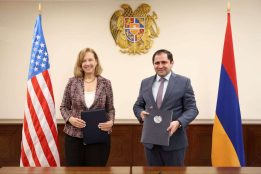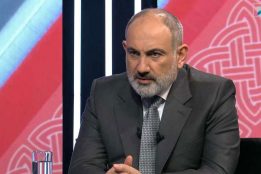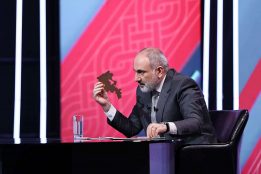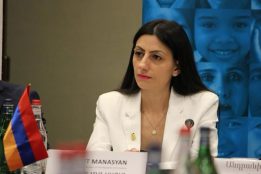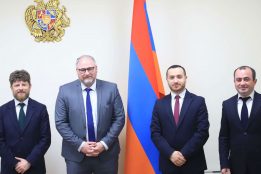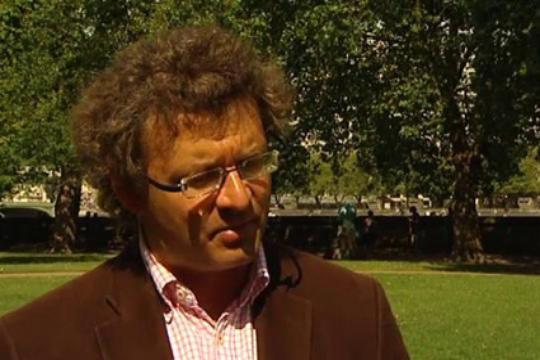
Below presented Kames Nixey’s recent article published on the Chatham House website.
James Nixey is a manager and a research fellow at Chatham House.
Bidzina Ivanishvili’s Georgian Dream opposition coalition has made substantial inroads into President Mikheil Saakashvili’s governing United National Movement in the country’s parliamentary elections this week.
The full results will not be known immediately, promising some rocky weeks – months even – of political instability ahead.
The election itself has been, if not truly democratic and fair (voters abroad seem to have been especially disenfranchised and the opposition have had a few extra hoops to jump through), then at least fiercely competitive. If most polls are correct, the opposition has won with a landslide, doing especially well in the cities.
The next few days should, in fact, provide a clear indication of Georgia’s path (and its stability) well beyond any elections.
To casual outside observers the election has rested on something that elections rarely rest on: foreign policy. Saakashvili accused his unexpectedly strong challenger of being a pro-Russian stooge on the flimsy evidence that he made his $US 4-6 billion (estimates vary) fortune in Russia and has made conciliatory noises to the country which he left in 2002. Ivanishvili and Georgian Dream, meanwhile, accuse the ruling party of bankruptcy – financial and moral – not to say unnecessary antagonism of their large neighbour to the north.
But foreign policy – and even relations with Russia – comes consistently low in opinion polls of Georgians’ concerns. Social welfare and individual prosperity are more important – though those ‘internal’ issues have morphed into foreign policy anyway: for Saakashvili and his party, Georgia will grow prosperous only by realizing a ‘European dream’, although it has stepped back from its commensurate values of late.
Ivanishvili’s Georgian Dream does not accept that good relations with both Europe and Russia are mutually exclusive. This is outwardly sensible, but if it gains power (now, and especially in 2013), Ivanishvili’s may find out that such ostensibly enlightened views – much like the Russia-US ‘reset’ – are naïve. This will depend on what both sides do, not just on what they say.
Russia has been judiciously quiet throughout Georgia’s election build-up. There is no proof that Ivanishvili, who has only been allowed to spend a fraction of his fortune on the campaign, is in any way beholden or even amenable to the Kremlin’s unconcealed desire for influence. But he is likely to take a less antagonistic policy than Saakashvili, for whom there is no way back with Russia President Putin now. This is despite Georgia benefiting from substantial Russian investment. Assuming Georgia does not erupt into civil war, an initial turn to Russia with Ivanishvili would bring a more immediate economic benefit than a re-engagement with the non-committal West under any Saakashvili-inspired system. Though that equation is far more suspect in the medium to long term.
So, Russia is content either way. Both now and next March, it either ‘gets’ the current ruling party which it finds easy to discredit, or more likely, a more accommodating, new administration with which it can do further business (probably Russian-style). A rare win-win for the Kremlin.
Most observers have lamented the slow but steady decay in Georgian democratic development in the past five years and it is hard to feel sorry for the regime. A disappointing economic picture, the centralization of power and the small matter of partial responsibility for the August 2008 war, have certainly tarnished the Saakashvili administration’s credentials at home and abroad. Yet, the 2003 Rose Revolution did bring to power the most radically transformative government and un-Soviet President ever seen the ex-USSR space (Baltic states apart) and the country’s genuine progress in social reforms and strong Euro-Atlanticist direction cannot be denied. Georgia has at least struggled with itself (and with others) for a break from its Soviet past (and its Stalinist progeny) and a new start.
The 12 countries of the former Soviet Union (Baltic states apart) have now managed an outwardly impressive 119 parliamentary and presidential elections between them since independence in 1991. The vast majority of them, though, have been entirely devoid of meaning, simply serving as expedients for the continuation of power. Most of the people have been cheated for over twenty years. The ruling regime in Georgia will try to cheat too, but this time it is unlikely to work, partly due to the fact they disgusted the electorate in the lead-up to the parliamentary elections.
Ukraine, whose own elections are on 28 October, is the bigger country and the bigger prize for both Europe and Russia. But it is undoubtedly regressing, headed the way of Belarus whose recent disgraceful elections have were rigged. The West has lost – and washed its hands of – both Ukraine and Belarus until the regimes there change of their own accord.
But in Georgia, there is still everything to play for if peace prevails. It remains the country in the former Soviet Union with the most charm, and the most potential (Baltic states apart) to take steps forward. The irony is that Mikheil Sasakashvili will have to lose power to prove it. But that may not be a problem now.

















